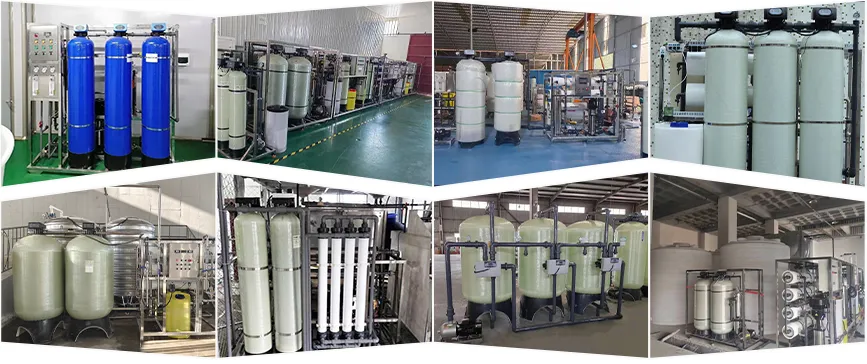loading...
- No. 9, Xingyuan South Street, Dongwaihuan Road, Zaoqiang County, Hengshui, Hebei, China
- admin@zjcomposites.com
- +86 15097380338
- Welcome to visit our website!
Exploring the Advantages and Applications of FRP Vessels in Modern Industries and Infrastructure
FRP Vessels A Comprehensive Overview
Fiberglass Reinforced Plastic (FRP) vessels have gained significant traction in various industries due to their unique properties and benefits. These structures, composed of a polymer matrix reinforced with fiberglass, represent a combination of strength, durability, and lightweight characteristics that make them ideal for many applications. From chemical storage to water treatment, FRP vessels are redefining standards across different sectors.
Material Composition and Properties
FRP is composed of two primary materials a polymer matrix and fiberglass fibers. The polymer provides the basic structural framework, while the fiberglass reinforcements enhance mechanical strength and resistance to environmental stresses. This synergy results in a material that is not only lightweight but also incredibly durable, resistant to corrosion, and capable of withstanding chemical attacks. These properties are particularly beneficial in industries where traditional materials like steel or concrete may fail due to rust, deterioration, or chemical exposure.
Applications of FRP Vessels
One of the most prominent applications of FRP vessels is in the chemical and petrochemical industries. Due to their exceptional corrosion resistance, FRP vessels are ideal for storing aggressive chemicals and harsh solvents. Unlike conventional materials, FRP does not rust, which minimizes leakage risk and enhances safety.
In the environmental sector, FRP vessels are widely used in water treatment plants for various processes such as aeration, sedimentation, and filtration. Their resistance to biological growth and chemical decomposition allows for efficient operation over extended periods, contributing to better environmental management.
Another area where FRP vessels are making waves is in the food and beverage industry. Storage tanks made of FRP ensure that substances are kept free from contamination and maintain their quality. Additionally, the lightweight nature of FRP allows for easier transportation and installation, a critical factor in the fast-paced food production environment.
frp vessels

Advantages Over Traditional Materials
The advantages of using FRP vessels over traditional materials are compelling. First and foremost is the weight factor; FRP is significantly lighter than steel or concrete, allowing for easier handling and installation. This lightweight feature not only reduces transportation costs but also minimizes structural loading on supports and foundations.
Corrosion resistance is a critical consideration in many industries, and FRP excels in this regard. With the ability to withstand a wide range of chemicals and hostile environmental conditions, FRP vessels have a longer lifespan than their metal counterparts. This longevity translates to lower maintenance costs and reduced downtime for businesses.
Furthermore, FRP vessels can be manufactured in various shapes and sizes, offering versatility that traditional materials may not provide. Customization options ensure that specific industry needs are met, whether for large-scale storage solutions or intricate processes requiring specialized configurations.
Challenges and Future Trends
Despite their many advantages, FRP vessels also face challenges, such as stigma regarding their initial cost and concerns surrounding their long-term durability compared to metals. However, as technology in materials science advances, the production processes for FRP are becoming more efficient, leading to cost reductions and improved quality.
Looking to the future, the demand for FRP vessels is expected to increase, particularly in industries focused on sustainability and environmental protection. With growing awareness of the need for durable, reliable, and eco-friendly solutions, FRP vessels are well-positioned to become a staple in industrial applications.
In conclusion, FRP vessels exemplify the progress and innovation within the realm of materials science. Their inherent advantages, coupled with diverse applications, suggest that as industries continue to evolve, FRP vessels will play a crucial role in meeting modern engineering challenges and advancing sustainable practices.
-
GRP Structures: The Future of Lightweight, High-Performance EngineeringNewsJun.20,2025
-
FRP Water Tank: High-Performance Storage for Corrosive and Clean Water SystemsNewsJun.20,2025
-
FRP Square Tube: The New Industry Standard for Chemical and Structural ApplicationsNewsJun.20,2025
-
FRP Pultruded Profiles: The Ultimate Choice for Lightweight Structural StrengthNewsJun.20,2025
-
FRP Handrails: The Safer, Smarter, and Stronger Choice for Modern InfrastructureNewsJun.20,2025
-
FRP Grating: The Smart Solution for Durable, Lightweight Industrial FlooringNewsJun.20,2025
-
Why Choose a Galvanized Water Tank for Your Storage NeedsNewsMay.21,2025
